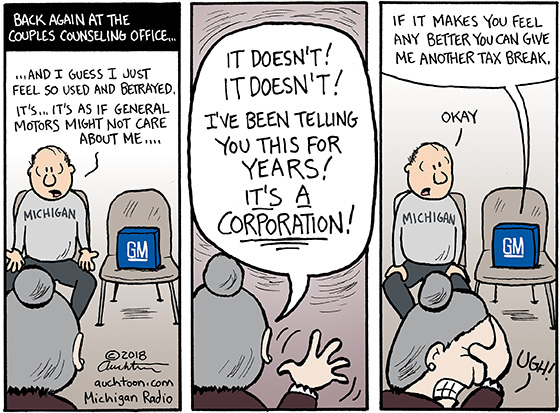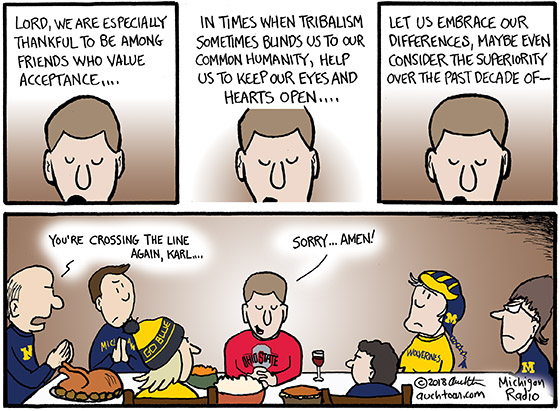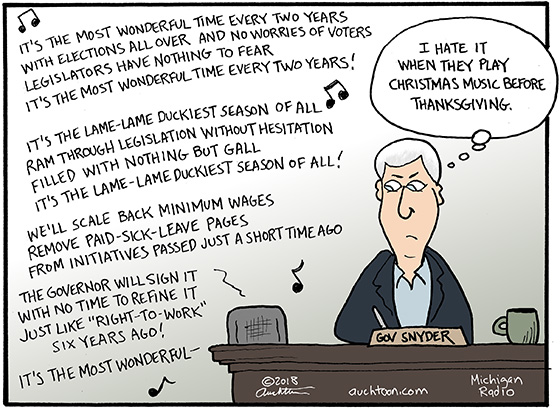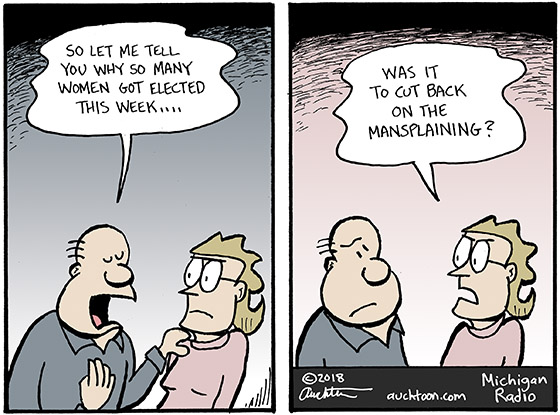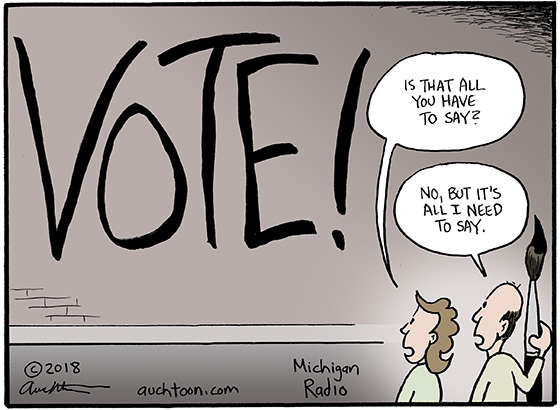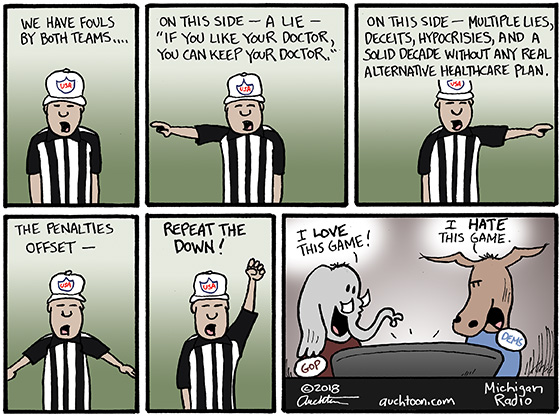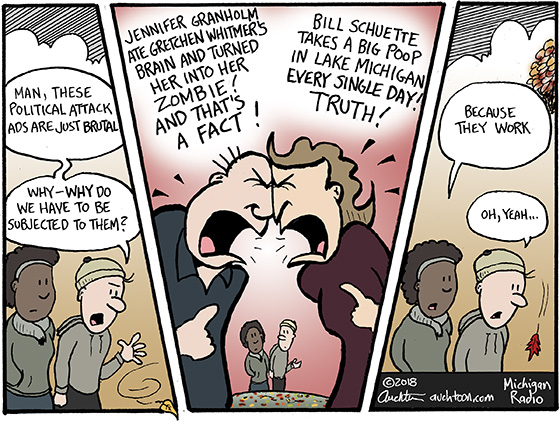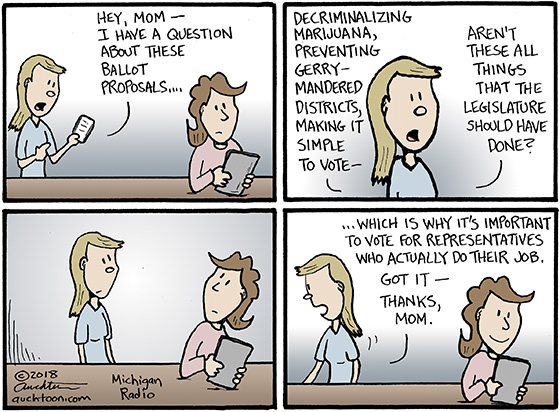

Look, it’s not like I’m unaware of my own inconsistencies and, well, let’s just say it: hypocrisy. I’ve drawn cartoons on several occasions expressing my opinion that ballot proposals are a bad idea and, well, let’s just say it: stupid.
And yet here I am fairly certain that I’m going to vote yes on all three of the proposals that will be on the November ballot. Let me attempt to explain, going from most defensible to least:
Proposal 18-2: A proposed constitutional amendment to establish a commission of citizens with exclusive authority to adopt district boundaries for the Michigan Senate, Michigan House of Representatives and U.S. Congress, every 10 years. This is the “anti-gerrymandering” proposal. I support this wholeheartedly because it simply is not realistic to expect the legislature to fix this. In an ideal world, perhaps. But it is just so against nature for a ruling political party to cede any ground in defining boundaries for voting districts. This is the only practical way to get it done.
Proposal 18-3: A proposal to authorize automatic and Election Day voter registration, no-reason absentee voting, and straight ticket voting; and add current legal requirements for military and overseas voting and postelection audits to the Michigan Constitution. This is the “simplify voting” proposal. Again, in an ideal world, this wouldn’t be an issue. Of course we want to make participation for citizens as straightforward as possible. Who wouldn’t? Folks who benefit by making voting difficult, that’s who. A few years ago, this was easily solved by calling out the suppressors. These days, however, suppression appears to be an acceptable strategy.
Proposal 18-1: A proposed initiated law to authorize and legalize possession, use and cultivation of marijuana products by individuals who are at least 21 years of age and older, and commercial sales of marijuana through state-licensed retailers. This is the “legalize recreational marijuana” proposal. Truly this should be the job of the legislature, and the 2008 medical marijuana ballot proposal is the cautionary tale. Since its approval, it’s been a constant grind to make the rules that define exactly what “legal” means. Good legislation establishes those rules before becoming law. So I’m wavering on this one, but the legislature has shown no inclination to deal with it the right way.


